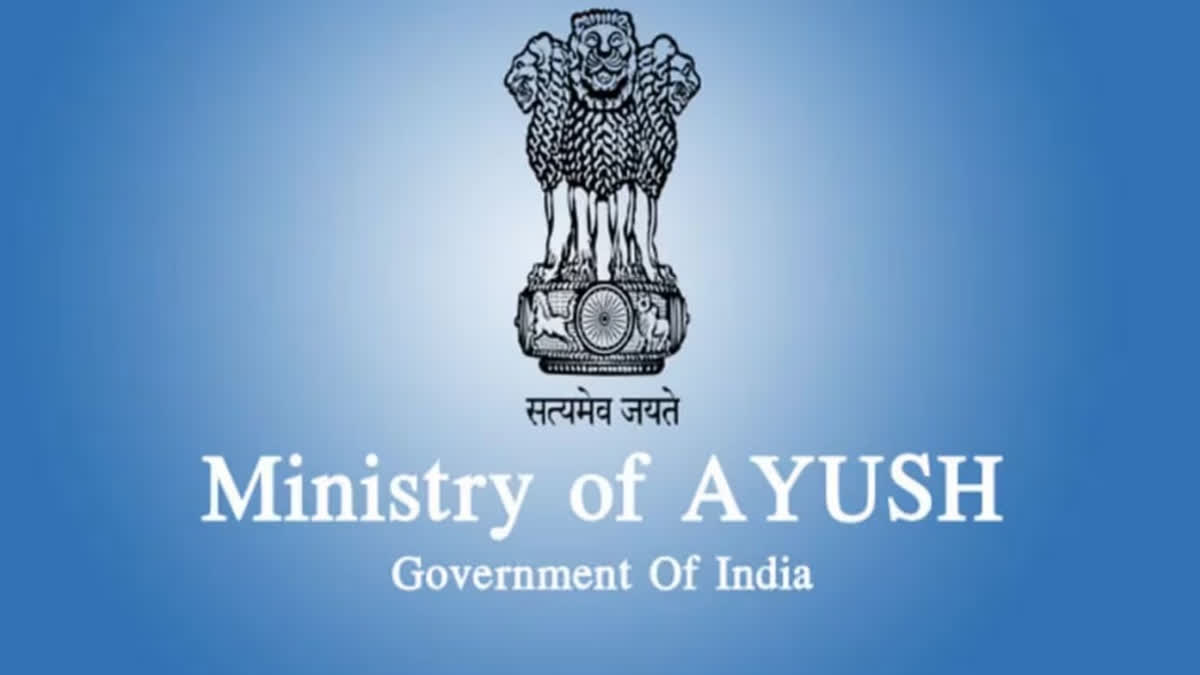New Delhi: Amid continuous debate over mixopathy, secretary in the AYUSH Ministry Vaidya Rajesh Kotecha on Wednesday said that integrating AYUSH with modern medicine has shown significant outcomes.
AYUSH is an acronym for Ayurveda, Yoga and Naturopathy, Unani, Siddha and Homeopathy and are the six Indian systems of medicine prevalent and practiced in India and some of the neighboring Asian countries
“There are several studies where integrating AYUSH with modern medicine has shown significant outcomes. It must be said that modern medicine has rigorous scientific research and clinical trials to establish the safety and efficacy of their treatment, which they believe is lacking in AYUSH. However, there are various studies of AYUSH which have been published in well reputed journals which have established the efficacy of AYUSH,” said Kotecha in an exclusive interview to ETV Bharat.
Referring to the controversy over mixopathy, Kotecha said, “It is true that modern medicine opposes mixing of medicine or mixopathy. The Ministry of AYUSH is also not adhering to the practice of mixopathy. In AYUSH, sometimes, we integrate with the modern medicine as an adjunct or complementary medicine.”
He said that AYUSH practices may complement modern medicine and can very well act as an Individual System of medicine. “For example, Homoeopathy used as an adjunct with modern medicine in Covid-19 times which has shown promising results and Yoga & meditation are recognized for their potential benefits in managing stress and promoting mental well-being, which has already been integrated into modern healthcare as adjunctive therapies,” said Kotecha.
“It is deeply rooted in India’s cultural and traditional practices, making it an integral part of the country's heritage and also often rely on natural remedies, herbs, and lifestyle modifications, which are generally considered safe with fewer side effects compared to synthetic drugs. It works as preventive healthcare through practices like Yoga and Ayurveda, which focus on maintaining balance in the body and mind. This preventive approach can help reduce the burden on healthcare systems by promoting wellness and reducing the incidence of chronic diseases,” said Kotecha.
Referring to the challenges faced by AYUSH, Kotecha said that there are many areas where Indian system of medicine and Homoeopathy should focus on but mainly on human resource development, data repositories development, practice and evidence interface, translation of evidence into policies and leveraging traditional knowledge to meet the modern health demands.
“The Ayush Ministry has the best policy, dynamic leadership and the most favorable environment. It is time to demonstrate the potential of AYUSH systems in improving health indicators. Development of a critical mass of outstanding clinicians and researchers from contemporary health sciences and AYUSH systems has to be given priority. India has institutions and experts committed to AYUSH practices and research. Utilization of AYUSH in the community is a dynamic phenomenon that needs continuous research,” he said.
The challenge for all the stakeholders is to deliver outcomes and transform the health status of people through AYUSH approaches. A strong science-policy-practice interface is needed for innovation and development of AYUSH today. The interface should drive research priorities, funding mechanisms, human resource development research with its translation from concepts to practices, he said.
“An effective framework for implementation of the NHP 2017 will be crucial in achieving its expected goals. The challenges for clinical application include how to bridge the gap in clinical evidence, derivation of appropriate methodologies, how to gain novel insights into disease patho-physiology through AYUSH treatment modalities, and development of rational combination therapies for non-communicable diseases like cancer and diabetes,” Kotecha stated.
When asked about the World Homeopathy Day, Kotecha said that celebrating World Homeopathy Day on April 10-11 can indeed contribute to promoting the AYUSH system of medicine, specifically homeopathy in various aspects.
“It can create awareness among the public by educating about the benefits and efficacy of homeopathic treatments. Inclusion of educational activities aimed at healthcare professionals, students, and practitioners who can enhance their understanding of homeopathy, its applications, and its role in integrative healthcare,” said Kotecha.
According to Kotecha, the day gives a platform for advocating for supportive policies and regulations that promote the practice and accessibility of homeopathy by engaging with policymakers and decision-makers to address challenges and opportunities facing the homeopathic community.
Read More
Scientific Rigor Backed by Facts and Analysis Will Increase Confidence in Homeopathy: Prez
World Homeopathy Day 2024: Significance, History and Trend in India



